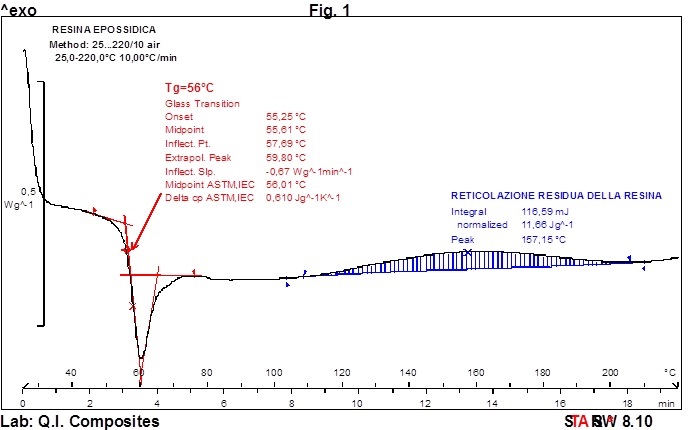Chemical Analysis by DSC
 Our lab is able to perform analysis with the Mettler-Toledo DSC822 differential scanning calorimeter.
Our lab is able to perform analysis with the Mettler-Toledo DSC822 differential scanning calorimeter.
Technique, applied to polymers such as epoxy, polyester and vinylester is designed to determine:
- The temperature of glass transition, to constrain the cause of bubble formation in the laminate material
- The reaction enthalpy, which is required to estimate the extent of resin polymerization
- Fusion temperature
- Percentage of crystallization
What is a differential scanning calorimeter?
Differential scanning calorimetry is a technique designed to compare the heath flow through a sample and some reference material as a function of temperature during a controlled heating experiment.
DSC measurements provide information on:
- Thermal effects related to enthalpy variations during heating, caused by several processes including fusion, crystallization and chemical reactions
- Thermal effects related to changes in thermal capacity, allowing to determine the glass transition temperature
Glass Transition Temperature (Tg)
Threshold temperature below which amorphous polymers behave rigidly. At temperatures above Tg, amorphous polymers are characterized by plastic behavior, due to the higher degree of freedom of the system
Reaction Enthalpy (ΔH)
Energy released during a chemical reaction, such as termoset resin catalysis
Fusion Temperature (Tm)
Temperature at which crystals melt.



